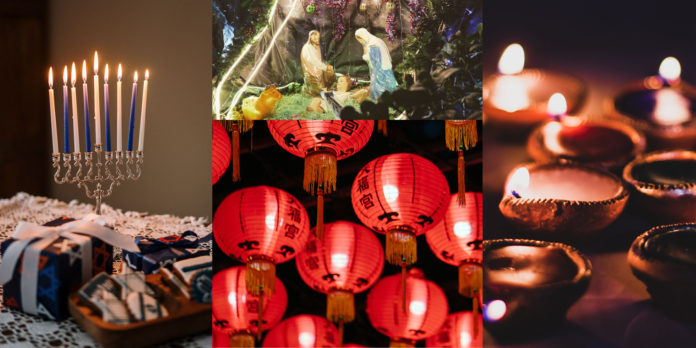“If we as a nation want to understand how to relate to the rest of the globe, then we need to have a richer and deeper understanding of different cultures — including various religions.”
— Mark Chancey
Religious diversity brings awareness to the significant differences in religious belief and practice. In searching for a richer and deeper understanding of diverse cultures, one must embrace religious tolerance, understanding, acceptance and a willingness to move beyond our differences.
Religious tolerance refers to the ability to appreciate spiritual values, beliefs and practices which are different from your own by removing prejudices and stereotypes. Understanding involves educating oneself concerning various religions, spiritual traditions and faith-based practices. Acceptance is the act of approaching other religions with mutual respect. Finally, one must have a willingness to accept others and their differences.
Mercer University has over 30 religions represented within the student body and over 13 faith-based student organizations on the Macon campus. The University even offers a major and minor in religion. The curriculum of the Roberts Department of Religion is designed to enable students to interpret sacred texts; develop a critical appreciation for religious traditions, with emphasis upon their origins, development and diversity; and integrate the intellectual, moral and spiritual dimensions of life. These courses, facts and organizations are a testament to Mercer’s Baptist heritage and its continual commitment to embrace religious diversity on campus.
During the months of October-February, many of the faculty, staff, and students celebrate and practice various religious and spiritual beliefs, including Chinese New Year, Christmas, Kwanzaa, Pancha Ganapati, Winter Solstice, Las Posadas, Hanukkah, and Diwali just to name a few.
Here’s a look at some of the holidays Mercerians already have celebrated and still are looking forward to.
Mawlid el-Nabi, Islam — Oct. 29
This is an Islamic holiday that honors the birth of the Prophet Muhammad, who founded Islam. Shia and Sunni believers will celebrate on separate days by reading the prophet’s teachings.
Diwali, Hindu — Nov. 14
Diwali, or the Festival of Lights, is a five-day-long Hindu holiday celebrating life and the victory of good over evil. It takes place in October or November of each year.
Rohatsu (Bodhi Day), Buddhist — Dec. 8
This holiday celebrates the historical Buddha’s decision and vow to sit under the Bodhi tree until he reached spiritual enlightenment.
Hanukkah (Chanukah), Judaism — Dec. 10-18
Hanukkah is a Jewish holiday that’s celebrated for eight days and nights, beginning on the 25th day of the Jewish month of Kislev. This is the eight-day Jewish festival of lights, which celebrates the Maccabean revolt in Egypt. Eight candles are lit with a menorah to honor the holiday.
Las Posadas, Christian — Dec. 16-Dec. 24
From Dec. 16 through Dec. 24, Las Posadas is celebrated by some Hispanic/Latinx families in the United States. It’s a nine-day celebration before Christmas that commends Mary and Joseph’s journey to Bethlehem to give birth to Jesus.
Winter Solstice, Pagan — Dec. 21
For Pagans, December means the holiday of Yule is coming. It falls on Dec. 21, which marks the winter solstice — the shortest day and longest night of the year. The winter solstice celebrates the rebirth of the sun because days get longer from then on out.
Christmas, Christian — Dec. 25
Christmas is a primarily Christian holiday that celebrates the birth of Jesus Christ.
Kwanzaa — Dec. 26-Jan. 1
In the United States, roughly 5 million people celebrate Kwanzaa each year. Kwanzaa is a seven-day holiday that celebrates African culture, unity and heritage. Kwanzaa is a Swahili word that means “first” and signifies the first fruits of the harvest.
Chinese New Year — Feb. 12
The Chinese New Year is celebrated for 15 days, beginning on the first day of the lunar new year. The 15th day of the new year is the Lantern Festival, which is celebrated at night with a parade.
Happy holidays and good luck on finals!









